Dramaturgy, Black Refusal, and Possibility with Otis Cortez Ramsey-Zoë
Daughters of Lorraine Episode #6
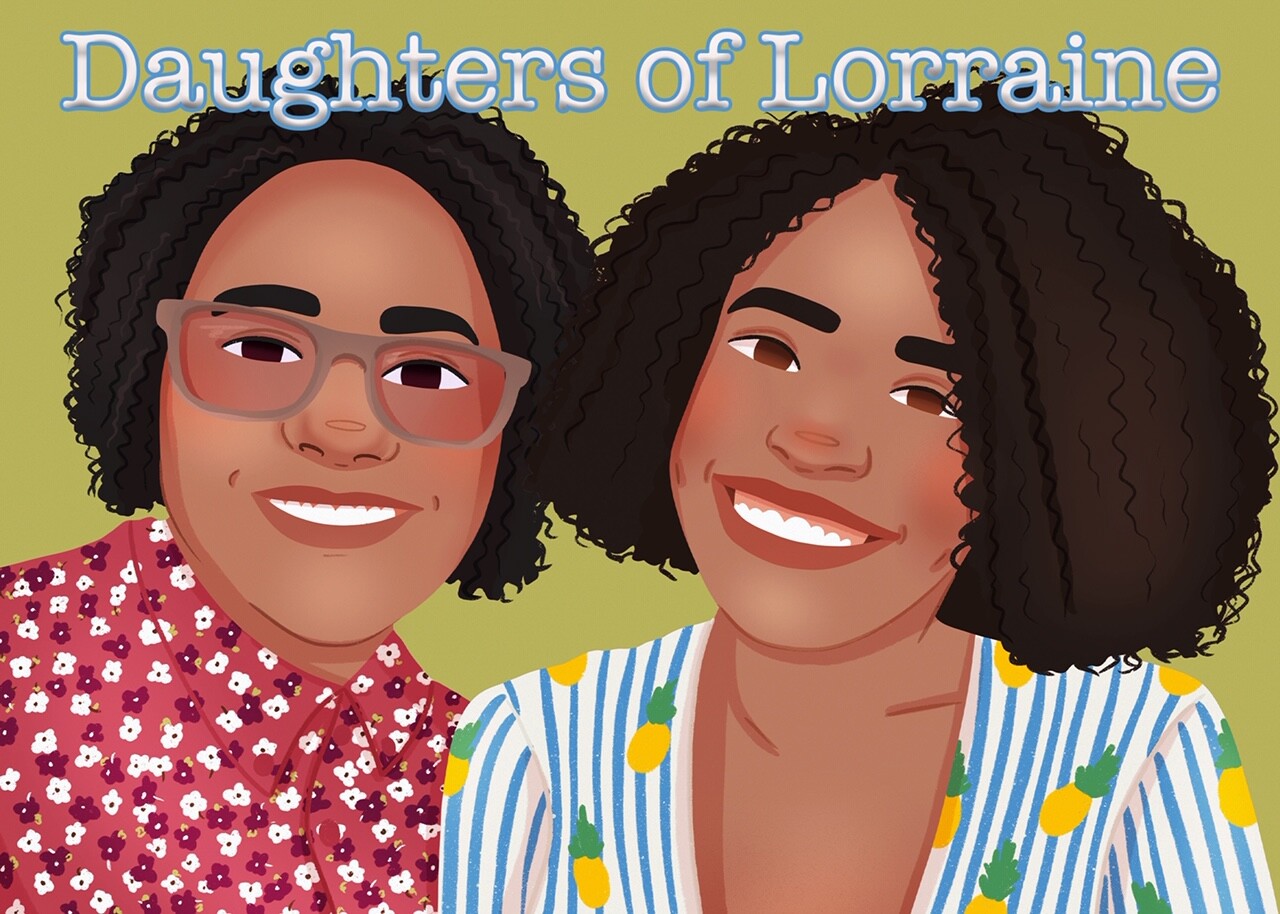
Daughters of Lorraine Podcast logo by Clarissa Bittes.
Leticia Ridley: Welcome to Daughters of Lorraine, a podcast from your friendly neighborhood Black feminists, exploring the legacies, present and futures of Black theatre. We are your hosts, Leticia Ridley.
Jordan Ealey: And Jordan Ealey. On this podcast we'll discuss Black theatre history, conduct interviews with local Black theatre artists and practitioners and discuss plays by Black playwrights that have our minds buzzing. You definitely won't want to miss this so stay tuned.
I think that in essence, I think about dramaturgy and play development as operating much like poetry... that dramaturgy is about that possibility and the capacity for surprise and discovery.
Jordan: Otis Cortez Ramsey-Zoë is a dramaturg, theatre arts educator, series editor for NoPassport Press' Dreaming the America series, and doctoral student at the University of Maryland. He has developed new works at such organizations as Sundance Institute, Kennedy Center, Alabama Shakespeare Festival, Playwrights' Center, National New Play Network, The Classical Theatre of Harlem, and Arena Stage. He was an adjunct instructor in performing arts at American University, lecturer of theatre arts at Howard University, associate artistic director at Banished Productions, future classics program coordinator at the Classical Theatre of Harlem, and the literary manager at Baltimore Center Stage. He is currently directing Harrison David Rivers' This Bitter Earth at Theater Alliance, which will run from 22 February until 22 March 2020. Today, Leticia and I got to sit down with Otis to get his thoughts about Black theatre as well as hear his own experiences being a Black theatre artist in this industry.
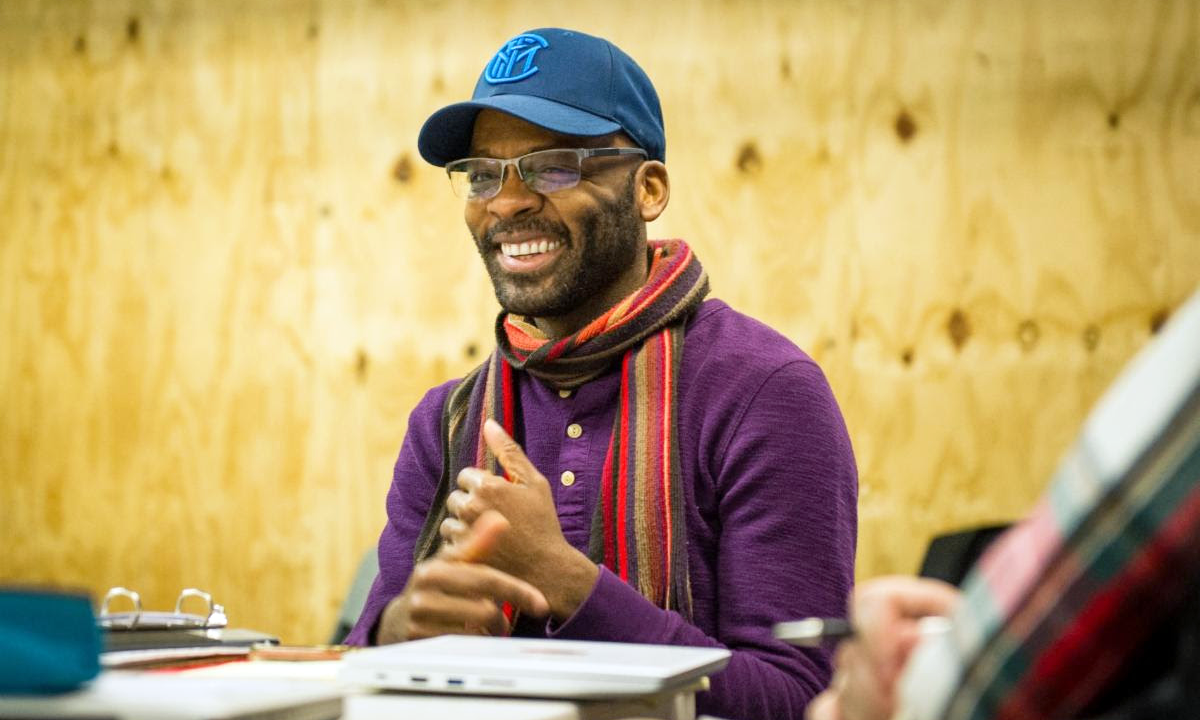
Otis Cortez Ramsey-Zoë directing This Bitter Earth at Theater Alliance. Photo courtesy of Theater Alliance.
Jordan: Hello. Hello everyone. Welcome back to another episode of Daughters of Lorraine. We are here today with dramaturg, director, PhD student, extraordinary human, comrade-in-arms, Otis Cortez Ramsey-Zoë. Welcome Otis.
Leticia: To Daughters of Lorraine and you are our first official guest, so it is an honor to have you sitting alongside us to have this great conversation about Black theatre.
Otis Cortez Ramsey-Zoë: Oh, awesome. Thank you very much. I suddenly became overwhelmed by being the first guest. I'm so humbled and so delighted to be here.
Jordan: Thank you so much. We just love Otis so much.
Leticia: If you don't know Otis, we are going to know about him today, but just an extraordinary human being, just a kind soul. Someone who I'm so honored to be in community with and we'll probably be gushing a lot about Otis throughout this episode in front of him, but I'm sure he's going to make him absolutely uncomfortable at some points.
Jordan: Just before we begin the official sort of interview portion. So we are both PhD students at the University of Maryland as we've mentioned on the podcast before and so that is how we got into community with Otis, who is also a PhD student at University of Maryland. So we're going to talk to him about his work, both academically and also artistically, and just get some thoughts about Black theatre. So cool. Otis, can you tell us a little bit about how you got into theatre?
Otis: Thank you. That is a big question that I should always be prepared to answer. I think that, to be more than honest, I actually got into theatre by accident. I had undergrad at the University of Notre Dame. I think I went to college. I was the first one in my family to do so thinking that I needed to do something important and for me that translated into law. So I was committed to being a lawyer. Except the two years leading into Notre Dame, I interned at a law firm where, let me tell you, when they let high school students intern, essentially it means that you become King of filing, sorting the mail, and updating the law library books, which is important work. But when I tell you it's essentially just taking the exhorts out, putting the new exhorts in. I started to think this was boring. The couple of times they did let me go to court was so boring. There was some tedious detailed work that my Virgo soul actually love because I get lost in details. I am not answering this question. I'm taking you all the way around the world. So get to the University of Notre Dame, first year of studies, don't really know what I want to do, but that's okay. Notre Dame's the kind of school where you just go into first year studies and you just explore and play. I ended up at a theatre party on Halloween and I said, "These are my people." And honestly I've made my way shortly thereafter, which is to say spring semester to speak to the chair of the theatre department and I declared a major and he said, "Have you taken theatre courses?" And I was like, "Not yet. I have some theatre in high school." But let me also tell you this, so Otis is a nerd, nobody's going to dispute that fact. But in high school I was like, a cool nerd. And the theatre kids in high school were decidedly not cool. So when I have teachers like, "Oh, you should do theatre." And I was like, "There is no way" because I was so committed to just whatever this image. Right? So essentially I became a theatre major because that's where my friends were. But on a deeper level, I went looking for myself because I was discovering things about who I am and how I moved through the world and it seemed like these folks had a handle on who they were in a certain kind of way. And I thought, let me learn how to be me by going over here. So that's how I fell into theatre.
Jordan: Yeah. That's so awesome. I feel like so many people discover theatre in so many different ways, both the by accident thing is something that I'm sure a lot of us can kind of relate to.
Leticia: Yeah. So just to continue to sort of speak on your journey into theatre, when was the first time you seen the show and what show was that?
Otis: So I'm from Eastern Illinois and right across the river, St. Louis. I remember going to the St. Louis Black Rep. I remember seeing shows when they came through on tour. So I remember seeing a lot of shows. The show that I remember making an impact on me was either middle school or high school. It was called and you know, memory can be faulty, so if this is not the title, please forgive me, author who's out there. But I believe the piece was called Train Is Coming. And it was a piece about the Fisk Jubilee Singers and it was their story of how they started singing really as a project to save the school. And they were short on money and they started singing spirituals touring through Europe. And this was a piece that I saw when I was in either high school or middle school at the Black Rep in St Louis. And it was probably about then that there was something about the stage that started calling my name, but that show has always stuck with me as something that was absolutely meaningful.
Jordan: Yeah, that's awesome. So you got into theatre, you've seen the show about the Fisk Jubilee Singers, and you declared your major. So how did you begin your professional experience? What is your journey to becoming a dramaturg?
Otis: Ooh, yes. So here I have to name check a couple of folks. Wendy Arons, who I believe at this point is still at Carnegie Mellon. She was at Notre Dame and also Jessica Chalmers who was from the world of performance studies. She was one of the members of the performance troupe, the V-Girls, and she also was one of my professors. I'm going to name check both of them, but directly related to dramaturgy. A lot of credit goes to Wendy Arons because I believe I was either a sophomore or junior. Everything blows at this age. And I think that the way I tell my origin story is that at a particular point when I figured out that I wasn't interested in being seen, so I didn't want to be on stage because I learned very quickly with some really wonderful professors that in order to be on stage really had to be able to be you, in a lot of ways, you had to be you and not you. And I would always find myself in acting classes, attempting to hide and obfuscate. If the character was nothing like me, I could sink in, but if I always felt like there was a little bit of Otis peeking through, I would try to figure out, okay, how can I hide me? Can I put on a character voice? Can I like give myself a limp? Like I don't want people to see Otis. So with that, I thought, you know what? I'm really here living in these classes when I'm writing papers about Spike Lee and how he's employing Brechtian techniques in his film and things of that nature. So let me go and study literature. So let me go be an English and history double major because I feel like that's really where I'm living. And Wendy Arons, maybe intuiting this, I had a class with her and she said, "Dramaturg. Dramaturgy." And I was like, "What is that?" She basically said, "Little boy, come follow me." What is that? Are we doing that now?
Leticia: No. No. We'll go back to that you can consider... then we'll go back to that.
Otis: All right, so I'm going to get my thoughts ready on the, what is dramaturgy question. And so Wendy Arons. Oh God, there's so many details that I feel like I want to live in, but I also want to skip through some. We're going to move quickly. I ended up drama choking for her for a show called Goodnight Desdemona (Good Morning Juliet). The following year, Hoga Tesco, who was a director of dramaturg from Bretch theatre, The Berliner Ensemble, was a visiting artist at Notre Dame. He was directing a production of Galileo. But the year before they ended up saying, "Y'all should sit down and have a meal together" because they were pitching that I should be his dramaturg. I ended up dramaturging for him and being cast in the show because at the audition he said, "No, do something." And so I auditioned and ended up also in the show and dramaturging. And so my journey to dramaturgy essentially started with Wendy Arons and then translating that into a professional. At some point in undergrad, American Theatre Magazine. We all were reading it at that time and perhaps now still, get you a subscription. They had in the advertisements, I saw an ad for the Allen Lee Hughes Fellowship at Arena Stage. That program has shifted a bit, but I remember bookmarking that and saying, "Okay, that's what I'm going to do." I taught in Dallas, fifth grade, all subjects for a year right after graduation because I didn't know how to go out and be a theatre artist. Okay, I got this degree, how do you do that? Oh, you know what? I'm going to teach. And somewhere at some point I was teaching and then I ended up convincing my teacher to let me teach a drama elective because it was a school that went from pre-K all the way up to eighth grade. And so I taught a theatre class and I remember one day afterwards she was like, Wait, why are you not doing theatre? You're so good at this. And so I ended up applying for that fellowship at Arena Stage. Got it. One year became two years and the journey was off from there.
Jordan: Great. So I think this is a perfect time for our listeners who don't know necessarily what dramaturgy is. How would you describe dramaturgy? And I know there's different areas and facets to it, so don't feel pressured that your definition has to be the definition, but how do you sort of come to understand what dramaturgy is?
Otis: Yes. Thank you so much for that question. I think I'm going to name check maybe some of the branches but then attempt to get an answer to your question. Right. So I think about dramaturgy is breaking down into new play development, production dramaturgy, literary management, and institutional dramaturgy. I feel like I might be forgetting something, but are some of the key areas of dramaturgy, but I think that what ties them all together, for me, is that dramaturgy begins with listening. That for me it is the first rule of dramaturgy and so within those different areas you are always listening on behalf of, right? Or in service of, right? So in my work in new play development, I'm listening in service of the play, on behalf of the author, and asking questions based on both this tension, I think, between what the writer is hoping to create or is creating and also how the project might be revealing itself, right? Because those aren't necessarily the same things a writer or might sit down and say, "Oh, I'm writing this thing." And then we get the page and it's something else. And so I'm just listening and asking questions about, okay, well what are the choices that you would like to make based on this dynamic tension that is showing up. Right? And I think that listening as well as possibility, that I think for me, dramaturgy is always about possibility. I'm never a dramaturg that insists that there's single way of achieving anything and in fact, I often think that if writers meet a dramaturg that wants to tell them, there's just one way, they might want to run.
Leticia: Mm-hmm (affirmative).
Otis: Because I think that there's so much space, I think for nuance and possibility that we ought to kind of listen to the places where we don't necessarily expect the work to go. I think that in essence, I think about dramaturgy and play development as operating much like poetry. And that when you sit down to write a poem or even to read a poem, the first line doesn't necessarily guarantee where you're going in the next line. The poems always had this capacity to surprise you and I think that dramaturgy also has that as a part of it, right? That dramaturgy is about that possibility and the capacity for surprise and discovery.
Jordan: Mm-hmm (affirmative). We told y'all that there were going to be some gems dropped.
Leticia: Yes. Yes.
Jordan: So don't be surprised. We warned you.
Leticia: Yes. So here in Daughters of Lorraine, we focus on Black theatre. I'm really firm like a Black feminist perspective, et cetera, et cetera. So something that I'm interested in hearing a little bit about is, what is it like being a Black theatre artist? And especially being a Black dramaturg because dramaturgy already is something that's very mystical to people, but then you have someone who is a Black dramaturg and what that practice looks like. So I'm interested in hearing how your career has been shaped by being a Black theatre artist.
Otis: Thank you for such a rich question. I think the first place that I want to go with this question is thinking about sort of my Black body, my queerness, how I moved through the world and that what it means for me to be a Black dramaturg and what I bring into the room is kind of an awareness of care I think. I think about the artists that I work with and I'm sort of hyper-vigilant in thinking about the space and thinking about how people are treated in that space. And I have been in many rooms with writers and I actually find this more when I'm working with women or Black women specifically, where there is some type of gender or power dynamic. And it's not that I'm positioning myself to, let me be the savior of this Black woman because let me tell you, Black women can handle themselves. But also I've consistently found myself in situations particularly maybe where there is a white cis artistic director or head of a program who is insisting on a particular set of ideas or point of views and something happens in those instances where they don't hear at a frequency of woman or Black woman, right? And I have to kind of step in and say, "No, this is what it is." I've literally had this happen to me numerous times in my career and after each some version of the conversation of, Oh, thank you for... Thank you for... And this is often always true, simply lean in and just reinforce. I basically restated your point. He couldn't hear you. Right and so always it's being aware of what are the dynamics that are happening in the space and also taking care of my artists. I think about it a lot from the perspective of new play development that, I feel like I'm constantly in that space of, okay, let me step and let me make sure that the writer is cared for. And I think that that's one of the key things that I bring and how being a Black dramaturg and being hyper aware of how the world works and just subtle things that I think that people don't necessarily always see. Because people don't know that they are not listening to somebody, right? Because they may think that they're making a big point or whatever's going on. There's so many nuances within these situations that I'm calling to mind. And so I think that that's certainly what I think about. And I'm also an artist. I'm a person in the world that, like, feels all the things, right? Like I'm thinking about Leticia’s introduction and all the warm things that that you said and I'm literally filling the eye. They are like water welling up in my eye because I feel so many things and I think that I bring that into the space as well. But not in the university of trying to be a softer because what I do is I armor up when I'm in a room, I can't even tell you. I'm starting to ramble a little bit but it's that kind of awareness of the necessity of care I think is ultimately what it comes down to.
Jordan: Yeah. I even think about my own experience as a dramaturg and just the matter of hair coming up, specifically Black women's hair with white directors who don't necessarily know what to do with Black hair and being a dramaturg who steps in and says, A Black woman would not wear her hair like this. You can't part it down the middle and have it go sideways. She wouldn't walk up the house like that. It's just like the subtle nuance things. I think sometimes white directors or non-Black directors don't pick up on or think about how that tells us something about the world of the play.
Otis: Yeah. Right. Because I'm thinking about the way in which sometimes I'm also not thinking about like nuance and details. This isn't a project that I worked on, but I recently had an occasion to watch a piece that was set in the South. And they play music from Stevie Wonder. And it was really confusing because it's like, this isn't South, but I think that there's a way in which Blackness sometimes can be this standing like, Oh yeah. Oh he Black. So this fits. And it's like, No. We have to actually interrogate this a little bit more closely, right? We can't just assume that... Yeah. And so I'm thinking about the story about like, Oh, well we'll just put this part down in the middle. No, no, no, no, no, there's actually implications and so let's actually think about the story that we're telling, right? How can we be honest in order to be true or tell the truth?
Jordan: Yeah. I like that specificity. It's something that I was having a conversation with a friend about something as overlooked, as dialect, right?
Otis: Mm-hmm (affirmative).
Jordan: You hire a dialect coach, if it's a story set in Ghana or Nigeria, right? Or even England, but you're not going to hire a dialect coach if you've hired Northern actors for a Southern play, right?
Otis: Right.
Jordan: Or you hired someone from California to play someone from Baltimore and you're not going to teach them how folks in Baltimore speak. And so I love that both of you sort of spoke to the specificity that gets lost with Black theatre. It's like, it's Black, so it's Black and it's Black and it's like, yeah, we're all Black but you're from St Louis, Leticia is from San Diego, I'm from Atlanta and we're different, right?
Otis: Yes, yes. Three different kinds of Black sitting in a room around microphones pontificating about this art thing that we do. Right?
Jordan: Mm-hmm (affirmative).
Otis: And I also love the way in which we wear our sort of geographical origin stories differently in our bodies and our voices and where are we revealing where we are obfuscating. All of those interesting tensions that just come up with Blackness because Blackness is sort of so nuanced and multifaceted, right? But that gets flattened out sometimes on stage because as you said, it's Black and it's Black. It's a certain kind of Black.
Leticia: Yeah. Yeah, definitely. So I think I'm going to take this opportunity to shift to your other role beyond being a dramaturg and I'm sure dramaturgy definitely infuses this other position that you hold within the theatre world, which is a director. Can you talk a bit about how you got into directing? What are your core principles of being a director?
Otis: Magnificent. Thank you. So the first thing I'm going to say is that, if we're comparing directing to dramaturgy. So dramaturgy is like that delicious pair of boots that I've always had that fit exquisitely. Directing as a new pair of shoes, honey. I'm still walking around my house, trying to break those in. So the directing work that I've done has always been tied to my work as a dramaturg, so I've seen directing as an extension of my dramaturgy. But right now I have this exquisite opportunity to direct a piece at Theater Alliance, which is in D.C,. in Anacostia and this is actually my first time directing a full production for the stage. That up until this point, I've done lots of workshops, I've done readings, and I've been asked to direct before and I think that I didn't have the confidence until I had the confidence, right? And I, a couple of years ago, studied directing with Joy Zinoman at the Studio Theatre Acting Conservatory. I think right now it's just the Studio Acting Conservatory. And, in that class, it affirmed that I already kind of knew a lot in as much as there was a lot that I was bringing to the table as a dramaturg, that just was very fulfilling in those exercises. And so when Raymond Caldwell, who's the artistic director of Theater Alliance, approached me. Well first of all, so I've known Raymond since, I want to say like 2009. He was also a fellow at Arena Stage, but we were there at different times and so he's a name that I had always heard, but the first time we worked together actually was in the Fresh Flavors Program at the African Continuum Theatre Company, which is no longer around in D.C., but they did excellent work while they were around. And he was an actor in a piece that I was directing a workshop for. And so to see him now in this role as a director, and he's always been a director and now as artistic director and we worked together both when we were teaching at Howard University. So just like Raymond Caldwell is my brother and he's a brilliant and generous human being. And so he sent me the script without letting me know why he wanted me to read it. And so I read it and gave him some thoughts and told him my response to the play. And he said, "Oh, I'm so excited. I'm so happy that this play resonates with you because I want you to direct it." I said, "Say what?" and we talked about what that meant. And at that time I had a practice, which I need to remind myself to return to, for any invitation, any offer to never give an answer in the moment that I would always say, "Let me get back to you," because I need to just listen to my spirit and evaluate and always know that the yes is coming from a place that I can support, right? It's just, this is me saying this, so that I remember to always take that break. So here I am getting ready to go into rehearsal next week, depending on when this podcast comes out, I will be in rehearsal.
Leticia: Mm-hmm (affirmative).
Otis: So what do I bring then to my directing? I think that right now I'm so interested in listening for the levels of storytelling, the story that presents itself, and then the story that's embedded in the story. I think that Harrison's work is so exquisite and poetic. And I mean poetic, not just in the places where there's a particular rhythm of poetry and images, but I think also in terms of density and economy. The way in which in a poem you can say so much with few texts and I think that that's what Harrison is doing and so my work here is to simply draw out the beautiful poetry and lay bare this relationship. It's the story of an interracial couple set in New York and Saint Paul, Minnesota between 2012 and 2015 and the backdrop then for this relationship is the Black Lives Matter movement and the series of tragedies where Black folks find themselves on... I'm trying to find... end up dead. I just like, can I say this in a way that doesn't take the wind out of me, right? When confronting on these realities of violence and anti-Blackness, that even somebody that lives in this world still has to kind of take a pause and find air and so it is a play that's looking at the ways in which the outside world enters into the relationship and is in the full walls of that relationship and then this tension between the sayable and the unsayable, right? And it's a play that speaks to my sensibilities, right? Because as a student of Toni Morrison and by student, I mean I've read all of her novels. I've never sat in her presence, but she has a glorious energy that her work also is about this tension between the seen and the unseen, the sayable, the unsayable, right? I think that this play really gets up in my spirit and so I'm just attempted to tell this story. The challenging thing I think about directing, and this is a thought that I've inherited from Raymond Caldwell, is, all the other artists on the design team get multiple drafts, right? The play has been through multiple drafts. All of your designers, you've been through various renderings, you've talked about, they've made revisions based on your notes. You go through tech and lighting is going through various drafts, but for the director, the director sort of gets a single draft, right? And it becomes their production, right? And so I think about that challenge and so then what it means to bring an abundance of preparation and clarity to the experience in order to render an exquisite first draft of this production for the audience. So we'll see what happens.
Jordan: Yes. We of course are going to be so fricking excited to see it and we also wanted to know, we've gotten to hear about your dramaturgy practice and your directing practice, so what collaborators in your professional career, your long professional career, have impacted you? Or what experience impacted you the most or a lot during your career in theatre?
Otis: Absolutely. Thank you so much. I think of course, first of playwrights. Jacqueline Lawton is a writer with whom I've worked, I should've counted up the number of times that Jackie and I have worked together, but I've worked with her on so many plays, mostly as a dramaturg but also as a director in workshops and one piece I was even an actor. I basically wear stage directions
Leticia: You still acting though?
Otis: Jac was like, "I need you in the room." Yes please. Stacy Rose, bookmark that name, underline it. Draw boxes around it. Highlight it. Stacy Rose is the future of the American theatre. If you didn't know I'm telling you now.
Leticia: High praise.
Jordan: High praise.
Otis: And that is a writer that I recently had the exquisite pleasure of working with on actually two of our pieces. So I did some work on Legacy Land when it was at the playwright center in Minneapolis and that's having its world premiere at Kansas City Rep, so look for that and also, America Volume 2.1: The Sad Demise & Eventual Extinction of The American Negro.
Leticia: Best title ever.
Otis: And the work that fulfills the promise of their title. So again, American Theatre. You need to get in, find this play look up Stacy. She's amazing. And that entire team on that production from its director, Logan Vaughn, to its designers, Chaucy on lighting, Ntokozo, forgive me, I cannot recall Ntokozo's last name, but on our costume designer created these exquisite pieces. I think about folks that I've worked with, Michael R. Jackson who is absolutely amazing and Anna Camp. I worked with them on their piece, Teeth, which is a rendering of the, what do you call it, the dentata a mythology. But his piece, A Strange Loop which is constantly on loop.
Leticia: For Jordan too.
Otis: Yes. I think about working with Robert O'Hara who, just being in the room with Robert O'Hara is simply a masterclass.
Jordan: And have you worked with him as both the playwright and director or when?
Otis: He was a director on the project that I was in the room with. It was a Colman Domingo's, Wild With Happy at Sundance Theatre Lab. And both Robert and Colman, Colman is like one of the warmest people I have ever had the luxury of meeting. I think about my career and I've been in some rooms. I've been blessed. I'm thinking about Noah Haidle and Tarell McCraney and Nathan Alan Davis and just, whoo!. I start name checking and I want to name check everybody. Jireh Breon Holder whose piece, In The Southern Breeze is just absolutely exquisite. But also artists that I'm obsessed with. So right now the poet Danez Smith is, I cannot say enough glorious things about their work. Danez has a collection called, Don't Call Us Dead. I traveled here today with it. I've read it and I just like to have it with me. So that if I just have a few minutes, there was sometimes actually I have it with me in my little satchel when I'm in the grocery store because I know that I'm going to just stand in line and even if I just read a single line, that is enough, that is an entire ministry and I'm just going to sit there and get fed off of Danez's work. They have a new collection coming out, actually this week, called Homie. I'm excited to get it. It's already pre-ordered. Yeah, I feel like I can keep name checking, but let's see where else this conversation goes?
Jordan: I love that you have other things besides theatre that inspire you because I feel like that is something that a lot of us can relate to and I think I just want to hear just a little bit about… so we mentioned that you are a PhD student, so what's academia got to do with it, right? Like what made you get into that teaching and scholarship? How'd you end up there?
Otis: If I was a singer I would start singing, It Was Written In The Stars. That's I think an opening in honor of a song that I know best from Ella Fitzgerald. But honestly I think about Irene Lewis who was the previous artistic director of Center Stage in Baltimore, as a means of answering that question. When I first interviewed for the literary manager job at Center Stage, at one point in the interview, Irene said to me, "Are you a professor? I think you're going to be a professor." And we had this conversation and I remember leaving the interview going, well clearly I didn't get that job because she feels like I should be somewhere teaching or something and I did. I ended up being the literary manager at Center Stage in Baltimore, but I think that there's something, you know how sometimes people see something in us that we don't even know is there, and of course I came to Center Stage after having done some teaching. I taught fifth grade, but I did not know that the way in which I was interrogating the world or curious about the world or interested in drawing out inquiry from others was a way of teaching. And I learned that in that assertion and, talk about a career where you just end up in the rooms where you're supposed to be in. I was at one point, running the new play program at the Classical Theatre of Harlem and I got a call from the chair of the theatre department at Howard University asking if I would be interested in applying for a post there because they had a position. And then I ended up on a professional track job at Howard teaching theatre history and play analysis and all kinds of fun courses like that and I ended up at Howard for six years. So it was those six years at Howard that made me go, Hmm, let me push this further and I think that at that point I was interested in pursuing inquiry just for me because I always set up my classroom as a laboratory for inquiry. In fact, sometimes I would tell my students that I'm more interested in questions than answers, right? Which is not to say I didn't care about answers, but I think that the quality of our questions can lead us places and so I think that that's what ultimately led me back to academia.
Jordan: That is, I love this idea of questions more than answers because as a Taurus, I always got the answers. But while we're on sort of this scholar direction and to sort of close out our interview before we get into our fun little game that we've organized today, is a really big question that I know is going to be like, Oh, what is the answer? because we're going to ask you to give an answer, what does Black theatre do well? In what areas can it grow? What directions do you think there's growth in?
Otis: You know what's interesting is, you're set up made me go What is this question about to be? But I feel like I haven't answered because in as much as this is what I love about, Black theatre and I'm going to call it resistance or maybe refusal and what I'm thinking about is sort of the Is-ness of Black theatre for me is its Is and its Ain't. Its refusal to be one thing. Its capacity to sort of be a thing and its opposite at the same time. Its refusal to fit inside of boxes. You both know that I come to academia with a particular interest in the so-called avant-garde and I always come back to the ways in which Blackness operates as a kind of ultimate avant-garde, right? The way in which it is outside and inside. It is subverting the circle while being the circle and so I think that one of the things that Black theatre and Black performance does well is this sort of disavowal of rigidity, right? A refusal to simply be what it is supposed to be. I keep coming back to poetry, right? In as much as, again, you begin in line of a poem and you don't know where it's going to take you. You just end up someplace different and I think that when Black theatre sort of takes us different places that maybe we didn't know that it's where we were going to go or we might not have chosen to go there had we known in advance, because sometimes you're not ready to go some places. And so that then becomes, for me, the answer to what Black theatre can do well and that is to sort of continue to refuse to acquiesce to formulas, right? So continue to refuse these limitations or these concepts that it ought to be a particular thing. And actually, let me go back and check myself when I say limitations because I think that limitations are wonderful, but where is the innovation that is available within the limitation? How can, within the limitation, you can still have surprise or wonder or inquiry or question or whatever that is, right? And so I think that for me, what Black theatre does well is its type of refusal.
Jordan: Where does it have space or places to grow?
Otis: Yeah. So places to grow. I want to go back to that.
Leticia: If you don't have the answer then.
Otis: Yeah. Yeah. I feel like I keep wanting to go back to this… Stop trying to be somebody else, right? And I kind of feel like places to grow is to be comfortable with your audience being the audience, right? That, not every play needs to be for three or four different audiences, right? If your audience is the six people in your collective, that's who the plays for and that's fine. And the rest of us maybe get to be invited to that experience and sit on the outside and sitting on the outside of an experience for which you are not the chief audience, I think is a beautiful place to be and we all got to be comfortable in that discomfort. We constantly, I think, engage with the ways in which I am a little bit most comfortable in discomfort because I think that that gives me a place of kind of interrogating. If I'm a little too comfortable, I'm not sure I'm in the right room and I feel like I need something to push up against. And so I think that one of the things that they can do well maybe is to discomfort the comfortable. Yeah, that's my answer.
Leticia: All right. So we are in the fun part of Daughters of Lorraine. The entire podcast was by Jordan.
Jordan: Oh my gosh. Sorry.
Leticia: So for our first guest on the show, who is Otis, we're going to play a little game. Just a lightning round. Otis, I know you like to overthink. Don't overthink. I sympathize with the Virgo spirit, but just the first thing that comes to your mind. All right, here we go. Favorite play?
Otis: The Theme is Blackness by Ed Bullins.
Leticia: Okay, second question. Favorite playwright?
Otis: Favorite playwright. I'm going to go with Susan-Lori Parks.
Leticia: Favorite director?
Otis: Favorite director. Oh God. Robert O'Hara. I've already said that.
Leticia: Favorite film?
Otis: Favorite film. Magnolia.
Leticia: Favorite musician?
Otis: Serpentwithfeet.
Leticia: Ooh. Favorite novel?
Otis: Favorite novel. Let's go with love by Toni Morrison.
Leticia: And finally your favorite place to read?
Otis: Ooh, my kitchen table.
Jordan: I have a bonus one. If you could be doing anything besides theatre, what would it be?
Otis: Poetry, but I don't know if I'm a poet. But I'm living with so many poets right now, so that's my answer.
Leticia: Great. So that is our lightning round.
Jordan: Yes.
Leticia: So thank you Otis for joining us on Daughters of Lorraine. It was an honor, again as always, to be in your presence. Many, many gems in this episode that I will be returning to and quoting and living by, but before we close out, where can our listeners find you if they're interested in your work as a director or if they're interested with working with you, where can they find you? How can they find you?
Otis: Oh, thank you for this question. See this is why I'd ought to cultivate a web presence. So there's not a website yet. There ought to be. I'll think about that maybe after I get this degree in hand. I'm on Instagram @soihum and also find me on Facebook and LinkedIn and I think that's where you can find me.
Leticia: Yes. And also, so you mentioned your directing, so can you give us some info, some statistics or logistics, sorry, about where folks can go see your show.
Otis: Absolutely. So the piece we'll be playing at Theater Alliance, which is housed out of the Anacostia Playhouse. To find that online, feel free to Google Theater Alliance D.C. I believe that the website is theatrealliance.com or .org. I really should know that by now, but it's bookmarked so I never have to type it in. And the piece runs 22 February to 22 March and we'd love to see you in the audience.
Leticia: Yes, yes. And that is, This Bitter Earth by Harrison David Rivers and we hope that you all will go see it. We will definitely be in the audience for that show.
Jordan: Yes, absolutely.
Leticia: And this is our final episode of our first season of Daughters of Lorraine. So if you're looking for us after this episode, we're going to be on a little hiatus, planning the next season, reaching out to folks, things like that. So we thank you for tuning in to the first season of Daughters of Lorraine and we hope that you stick around for the upcoming season.
Jordan: Yes. And also you can find us on the socials. We actually have a Twitter page now. So you can follow us @DOLorrainepod on Twitter. And on that page you'll see our personal Twitters, which you are also welcome to follow. And we thank you so much for tuning in to Daughters of Lorraine, thank you to Otis for being our first guest. Thank you to HowlRound Theatre Commons for sponsoring our podcast. And thank you so much to the wonderful Black Theatre that we have encountered both in D.C. and throughout history. We are so excited about the state of Black Theatre and we are so grateful to be a part of the conversation.
Leticia: Yes. So for our final close out of the season, this has been Daughters of Lorraine. We are your hosts, Leticia Ridley.
Jordan: And Jordan Ealey. We thank you so much.

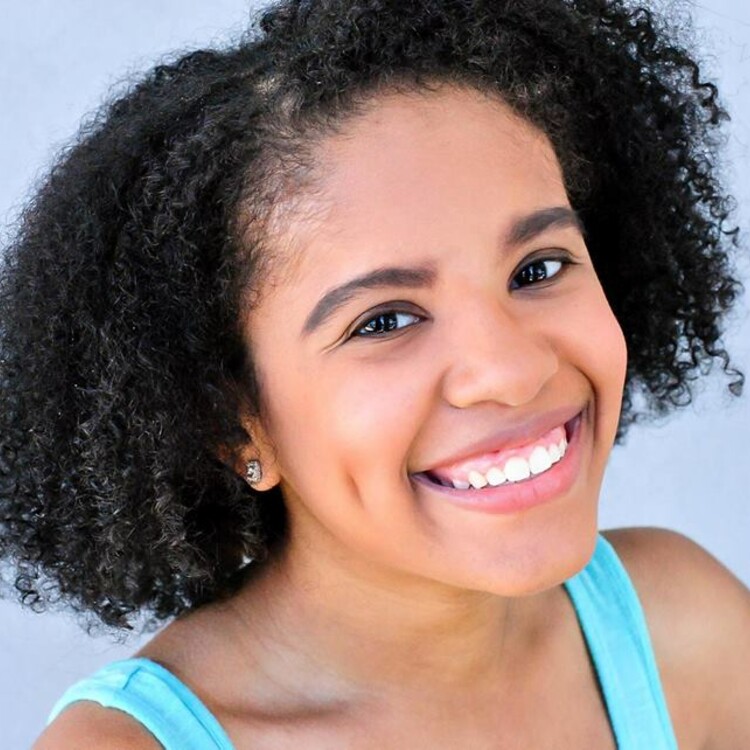
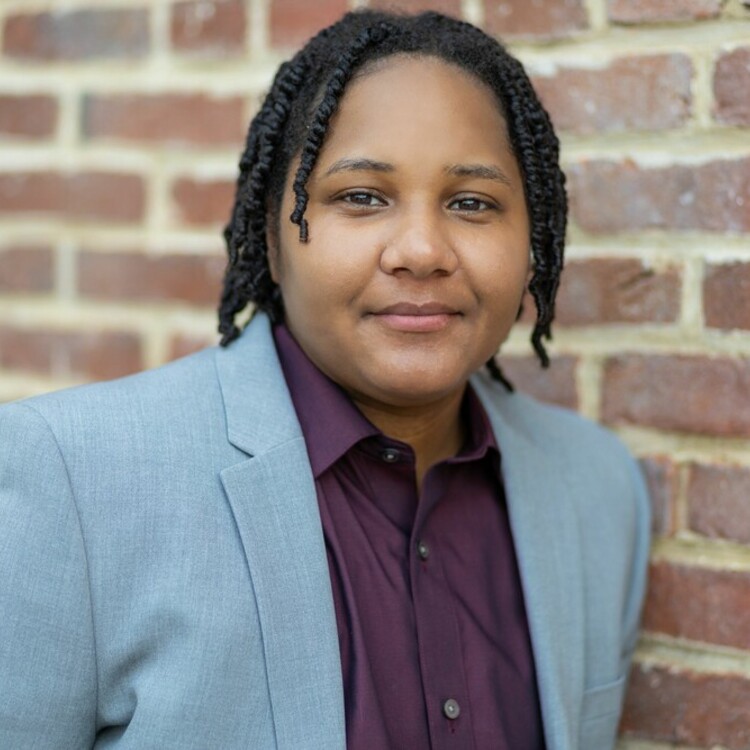
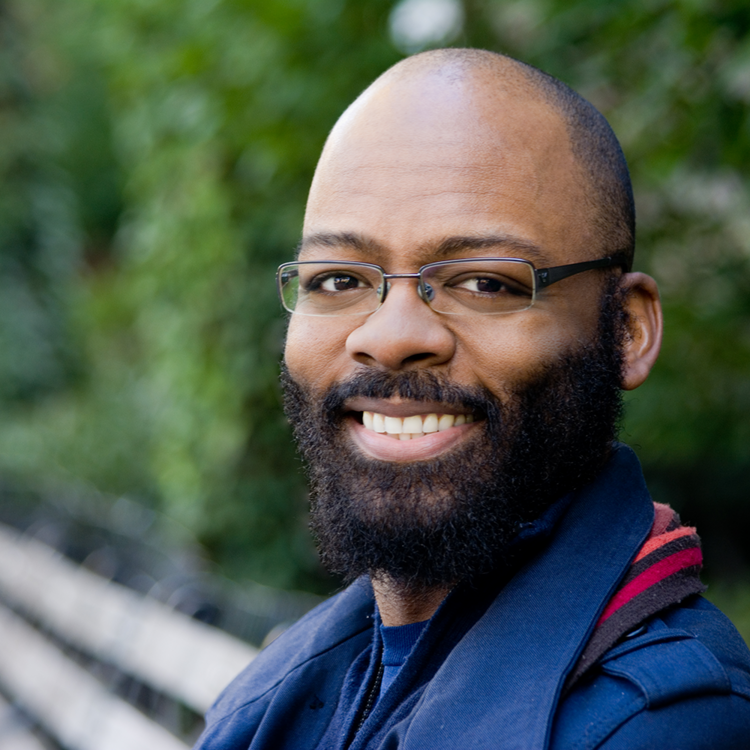
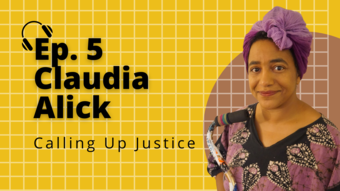


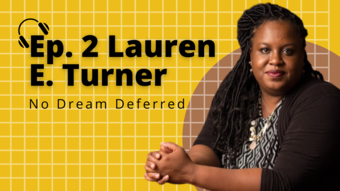

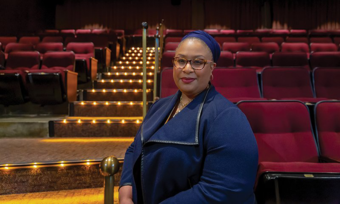



Comments
The article is just the start of the conversation—we want to know what you think about this subject, too! HowlRound is a space for knowledge-sharing, and we welcome spirited, thoughtful, and on-topic dialogue. Find our full comments policy here
Excited to learn more about this podcast series!